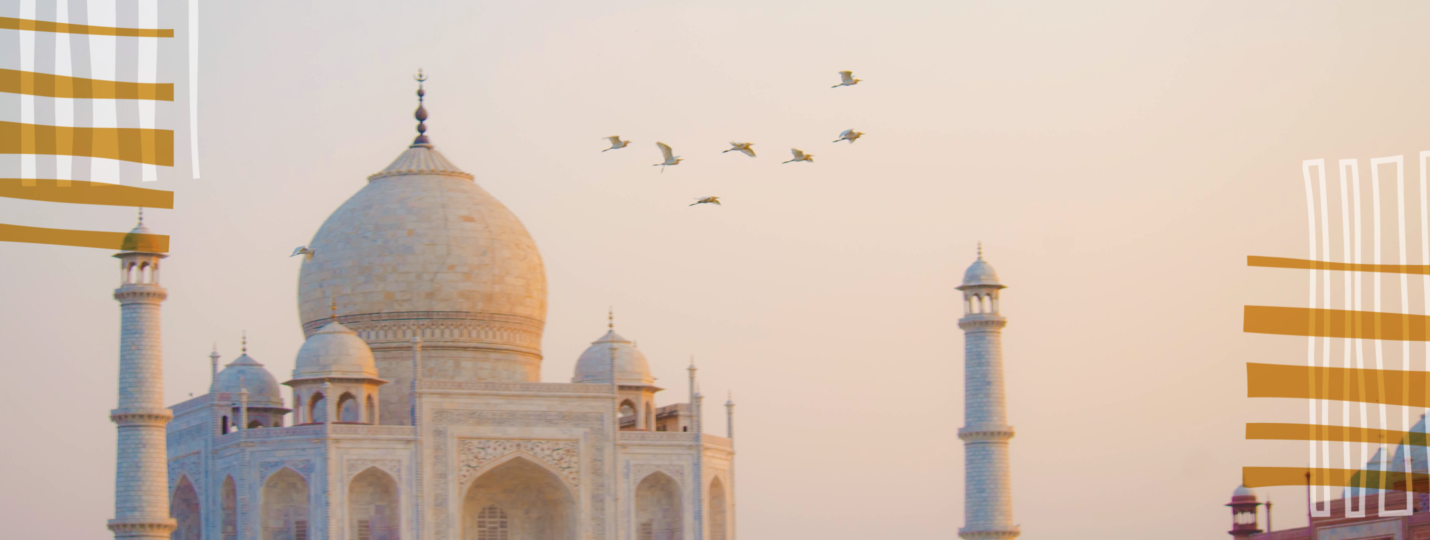
Muslim Population by Country in 2024
Amidst the kaleidoscope of cultures that adorn our world, the Muslim population stands as a vibrant thread woven into the intricate fabric of humanity. From the serene shores of Indonesia to the bustling streets of Cairo, the followers of Islam reside in every corner of the globe, each nation adding its unique brushstroke to the captivating canvas of diversity.
This article invites you to revel in the data to illuminate your understanding of the Muslim population by country. Embark on this expedition with us, which transcends borders.
Muslim Population Over the Globe
Islam, a religion founded upon the teachings of the prophet Muhammad, boasts a global following of more than two billion devout adherents. As the second-largest religion worldwide, it looms large, eclipsed only by Christianity. However, tantalizing projections hint at an imminent shift, with researchers speculating that Muslims will potentially outnumber Christians by the year 2050, igniting a profound transformation in the world’s religious landscape.
Stretching across continents, the Muslim community can be found throughout the globe, yet their density varies. Predominantly, the northern and central regions of Africa, the Middle East, and Southeast Asia serve as cradles of Muslim civilization. Countries in these locales stand as veritable strongholds, where Muslim populations often surpass 90% of the populace. Egypt, Afghanistan, Syria, Pakistan, Turkey, and Iran exemplify this religious tapestry, solidifying their status as Muslim-majority nations.
10 Countries with the Highest Muslim Population
Below are the top ten countries with the highest percentages of Muslim population:
Country | Muslim Population | 2023 Population | Muslim Percentage |
Indonesia | 229,000,000 | 277,534,122 | 87.2% |
Pakistan | 200,400,000 | 240,485,658 | 96.5% |
India | 195,000,000 | 1,428,627,663 | 14.2% |
Bangladesh | 153,700,000 | 172,954,319 | 90.4% |
Nigeria | 99,000,000 | 223,804,632 | 49.6% |
Egypt | 87,500,000 | 112,716,598 | 92.35% |
Iran | 82,500,000 | 89,172,767 | 99.4% |
Turkey | 79,850,000 | 85,816,199 | 99.2% |
Algeria | 41,240,913 | 45,606,480 | 99% |
Sudan | 39,585,777 | 48,109,006 | 97% |
10 Countries with the Lowest Muslim Population
The following are the ten countries with the lowest percentages of Muslim population:
Country | Muslim Population | 2023 Population | Muslim Percentage |
Vatican City | 518 | 0% | 0% |
Tokelau | 1,893 | 0% | 0% |
Niue | 1,935 | 0% | 0% |
Falkland Islands | 3,791 | 0% | 0% |
Wallis And Futuna | 11,502 | 0% | 0% |
Nauru | 12,780 | 0% | 0% |
Cook Islands | 17,044 | 0% | 0% |
Palau | 18,058 | 0% | 0% |
San Marino | 33,642 | 0% | 0% |
Marshall Islands | 41,996 | 0% | 0% |
Muslim Population by Country: The Wrap-Up
To conclude, our exploration has revealed that the majority of Muslims reside in regions such as northern Africa, the Middle East, and Southeast Asia. These areas serve as strongholds of the faith, with countries like Egypt, Indonesia, Bangladesh, Pakistan, Turkey, and Iran boasting significant Muslim populations.
Understanding the Muslim population by country allows us to appreciate the cultural, historical, and geopolitical factors that shape the expression of Islam. It emphasizes the significance of religious identity within specific national contexts and highlights the diversity of beliefs and practices that exist within the Muslim community.
What is the significance of understanding the Muslim population by country?
Understanding the Muslim population by country provides insights into the distribution, cultural dynamics, and influence of the Islamic faith across different regions. It helps shed light on the diverse practices, beliefs, and traditions within predominantly Muslim countries, allowing for a nuanced understanding of the global Muslim community's contributions and challenges.
How are countries classified as Muslim majority nations?
Countries where Muslims constitute more than 50% of the total population are considered Muslim majority nations. This classification recognizes the significant presence and influence of the Islamic faith within these countries, where the majority of citizens identify as Muslims.
Are all Muslim majority countries homogeneous in terms of religious beliefs?
No, Muslim majority countries are not homogenous in terms of religious beliefs. Within the Islamic faith, there are diverse interpretations, cultural variations, and sects. For instance, there are differences between Shia Muslims and Sunni Muslims, each with their own practices and traditions. These variations contribute to the rich tapestry of the Islamic faith within majority Muslim populations.
Which regions have a vast majority of Muslim populations?
The regions with a vast majority of Muslim populations include northern and central Africa, the Middle East, and Southeast Asia. These areas are home to many predominantly Muslim countries, where the Islamic faith plays a significant role in the lives of the people and the overall cultural fabric of the region.
How does the Muslim population contribute to the overall population of the world?
With over two billion adherents worldwide, the Muslim population constitutes a substantial portion of the global population. The Islamic faith's presence and contributions extend across continents, enriching various societies, and shaping the cultural and social landscape of numerous countries.
What countries have a predominantly Muslim population?
Countries such as Egypt, Afghanistan, Syria, Pakistan, Turkey, and Iran have a predominantly Muslim population. These nations serve as significant centers of Islamic faith and culture, where Muslims make up a vast majority of the total population.
What factors contribute to the diversity within the Muslim population by country
The diversity within the Muslim population by country is influenced by various factors, including historical context, cultural traditions, geopolitical dynamics, and the interplay between religious and secular influences. These factors contribute to the rich tapestry of beliefs, practices, and interpretations within different Muslim communities worldwide.
What is the global Muslim population?
The global Muslim population refers to the total number of individuals worldwide who identify as followers of the Islamic faith. With over two billion adherents, Islam is the second-largest religion globally, surpassed only by Christianity. That is, for the time being: it's expected that the population of Muslims will likely exceed that of Christians in the near future.
Which countries are considered Islamic countries?
Islamic countries are those where Islam is the dominant religion and holds a significant influence on the nation's cultural, social, and legal systems. While there are several Islamic countries worldwide, examples include Saudi Arabia, Iran, Indonesia, Pakistan, Egypt, and Turkey.
Which country has the largest Muslim population?
Indonesia is home to the largest Muslim population in the world. With over 231 million Muslims, comprising approximately 86.7% of its total population, Indonesia holds a prominent place within the global Muslim community.
What factors contribute to a country having the largest Muslim population?
Several factors contribute to a country having the largest Muslim population. These factors may include historical legacy, population size, cultural heritage, and the spread and adoption of Islam over time. Additionally, geopolitical factors and regional demographics also play a role in shaping the size of a country's Muslim population.
Are all Islamic countries solely populated by Muslims?
While Islamic countries have Islam as the dominant religion, it is important to note that not all inhabitants of these countries identify as Muslims. In many cases, there may be religious minorities or individuals who adhere to different faiths within these nations, contributing to religious diversity.
How does the Muslim population influence the cultural fabric of Islamic countries?
The Muslim population significantly influences the cultural fabric of Islamic countries. It shapes various aspects of society, including language, art, architecture, cuisine, customs, and traditions. Islamic values and teachings often serve as a foundation for social norms, family structures, and community practices within these nations.
Do all Islamic countries share the same interpretation of Islam?
Islamic countries encompass a range of interpretations and practices within the broader Islamic faith. Different regions and communities may have distinct cultural, historical, and scholarly influences that shape their understanding and interpretation of Islam. As a result, there can be variations in religious practices, traditions, and beliefs across Islamic countries. For instance, while some countries predominantly practice Sunni Islam, others practice Shia Islam.








